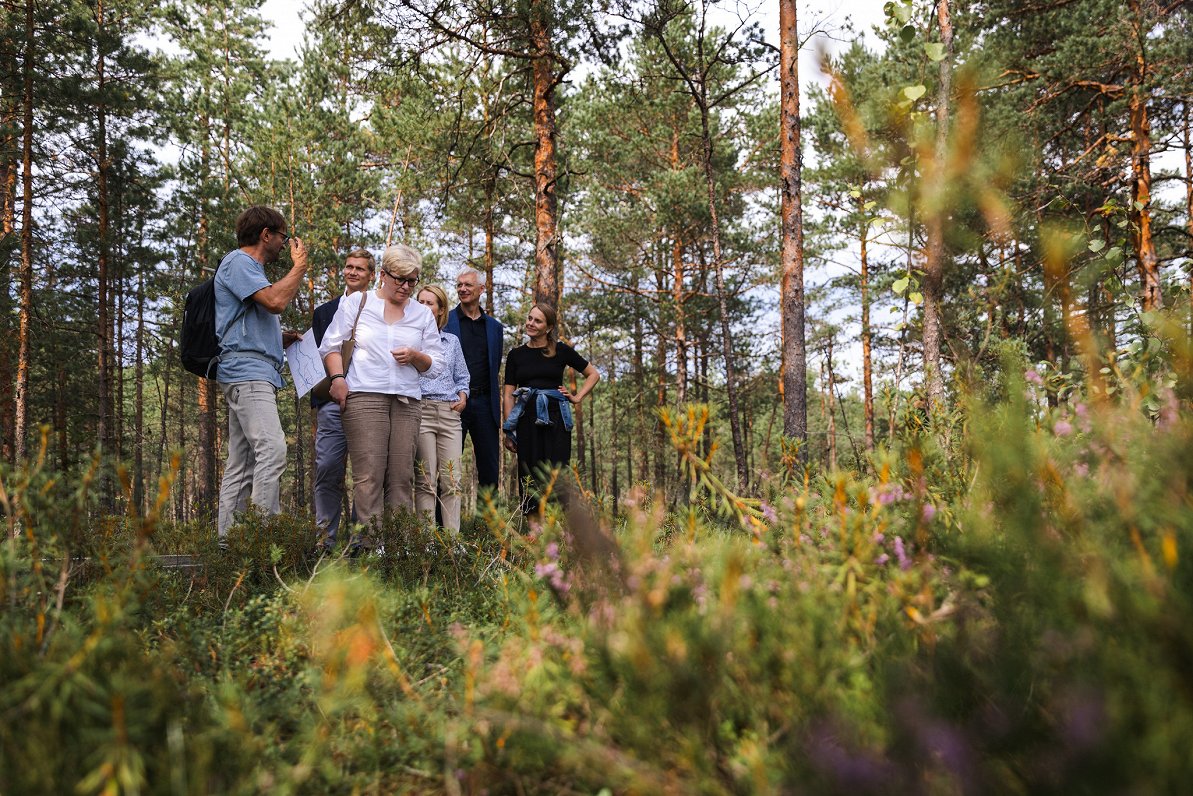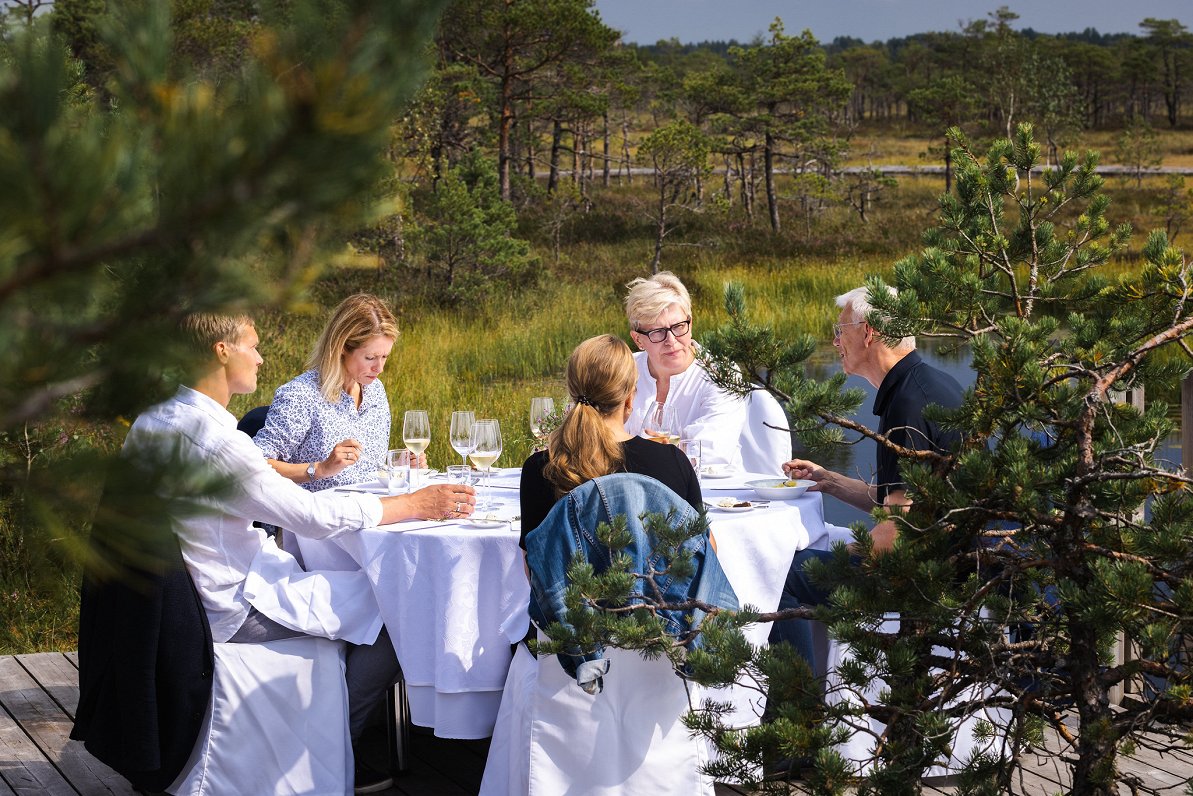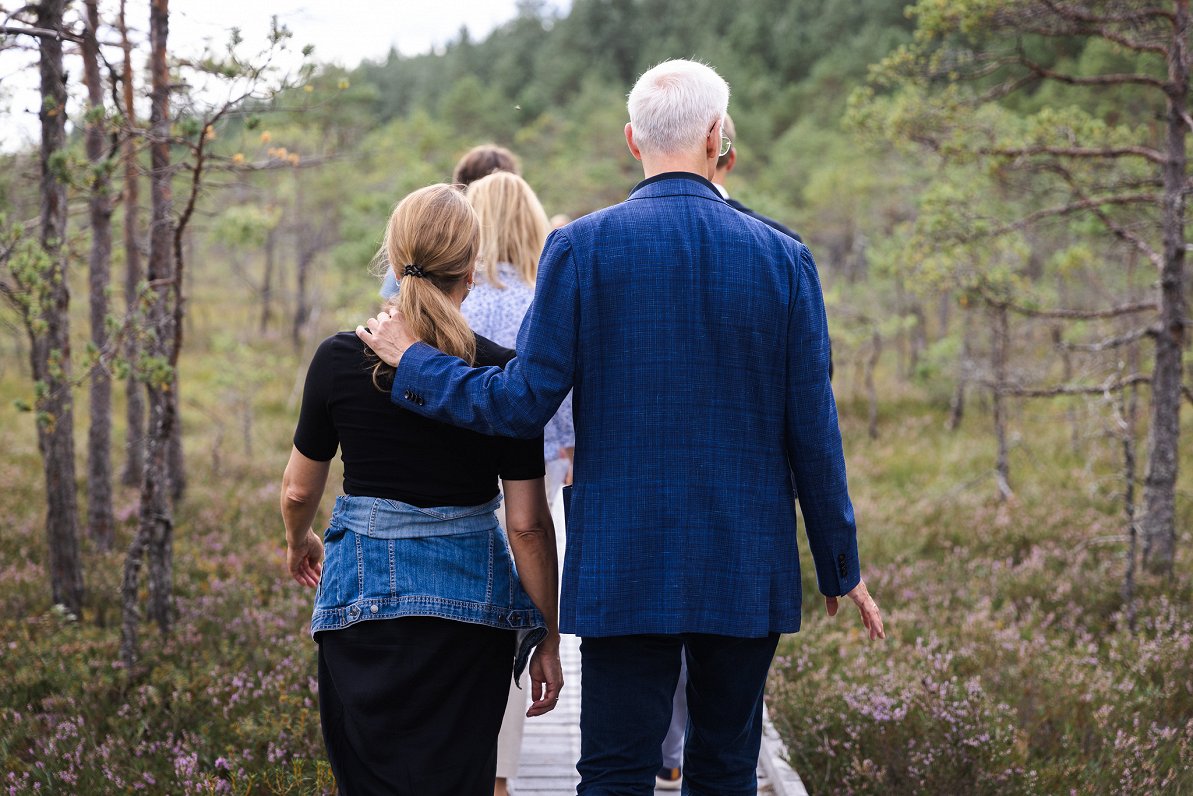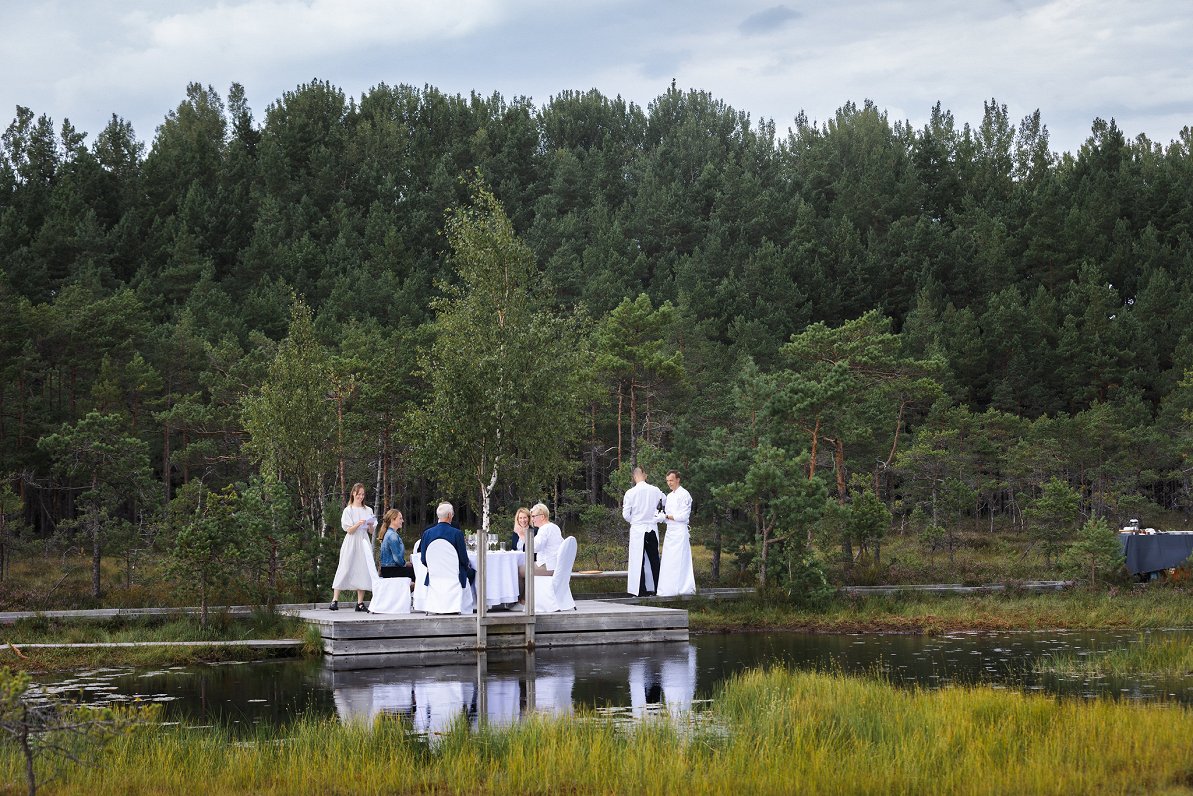Over the last couple of years, Baltic bogs have become an obsession of mine. I've written a fairly lengthy essay for Italian publishing house Iperborea extolling the virtues of Baltic bogs, having successfully persuaded them that Baltic bogs are quite different in character to Irish bogs, for example – though I'm sure they also have their charms.
I've also written a guide to Latvian bogs for Latvian State Forests, which you can pick up for free from lots of tourist information points or download here. This involved visiting dozens of bogs around the country, so I consider mysef if not exactly a bog expert, then at least not a bog novice.

The area along the border between Latvia and Estonia is particularly rich in bogs – several actually straddle the border – and whenever the opportunity presents itself I like to explore them. The Riisa bog visited by the Baltic Prime Ministers is between Parnu and Viljandi – slightly further north but still only a couple of hours' drive from Rīga.
I've even developed a tentative theory that, even though the Baltic states famously lack the natural barriers provided by convenient mountain ranges, these borderland bogs in effect serve much the same purpose as dividing lines between languages and culture – they are our invisible mountain ranges. You only have read a few of the legends about Latvians sneaking into Estonia to steal their treasure (and vice versa) via secret bog roads to think there might be something in it.
It seems unlikely that Latvian Prime Minister Krišjānis Kariņš stole any treasure on his visit to the Estonian bog, though as an upscale meal was served at a table erected for the occasion, perhaps he might have been tempted to pocket some silverware.
Given that Kariņš had just handed in his resignation to President Rinkēvičs the day before his bog expedition, placing him in a sort of political limbo until a new government is formed, the location for the prime ministerial meeting was appropriate: in Baltic folklore, the bog is often a place where the living world and the afterlife cross over, where people are led astray by false lights and false hopes, never to be seen again.

Additionally, one of the chief attractions of the bog is as a place to think. The wide horizons, the whispering wind and the resemblance of the dwarf pines and little bog pools to a vast, Zen bonsai garden lends itself naturally to rumination and philosophising. Hopefully the Baltic PMs had a chance for such reflections between courses. The brain works a different way in a quiet bog than it does in the reverberating cabinet debating chamber.
Linked to this, the bog also tends to expose the personality traits of those who visit them. To put it simply, many people get incredibly bored by a bog. Others get freaked out by the proximity of mortality once they are aware that stepping in the wrong place could see them instantly swallowed up by the mire, and find the overpowering size of the sky oppressive, the strange sounds of animals from the forest edge threatening.
Still others are slowly seduced, mesmerized (on a hot day, the strong smell of wild rosemary can have a slightly narcotic effect) and would quite happily live the languid life of a lotus-eater in a Baltic bog – at least until the winter comes, at which point it's time to start raiding the neighbors via secret paths across the bog in search of more treasure.

I wonder what reactions the Baltic Prime Ministers saw in each other. Who looked at home and who couldn't wait to get home? Who thought "We could do more of this" and who thought "We should do less of this"? From the pictures supplied by the Estonian government press service, none of them seem to have had the 'freaked out' reaction. I'm pretty sure all three coped with it better than a lot of leaders I could think of, who would most likely not get past the thought "Why a bog?".
So kudos to the PMs for showcasing what I believe are the greatest natural wonders of the Baltic states – their bogs. I just hope their initiative isn't too great a success because one of the principal attractions of going to a bog is the low probability of encountering anyone else... let alone three prime ministers and their retinues.































